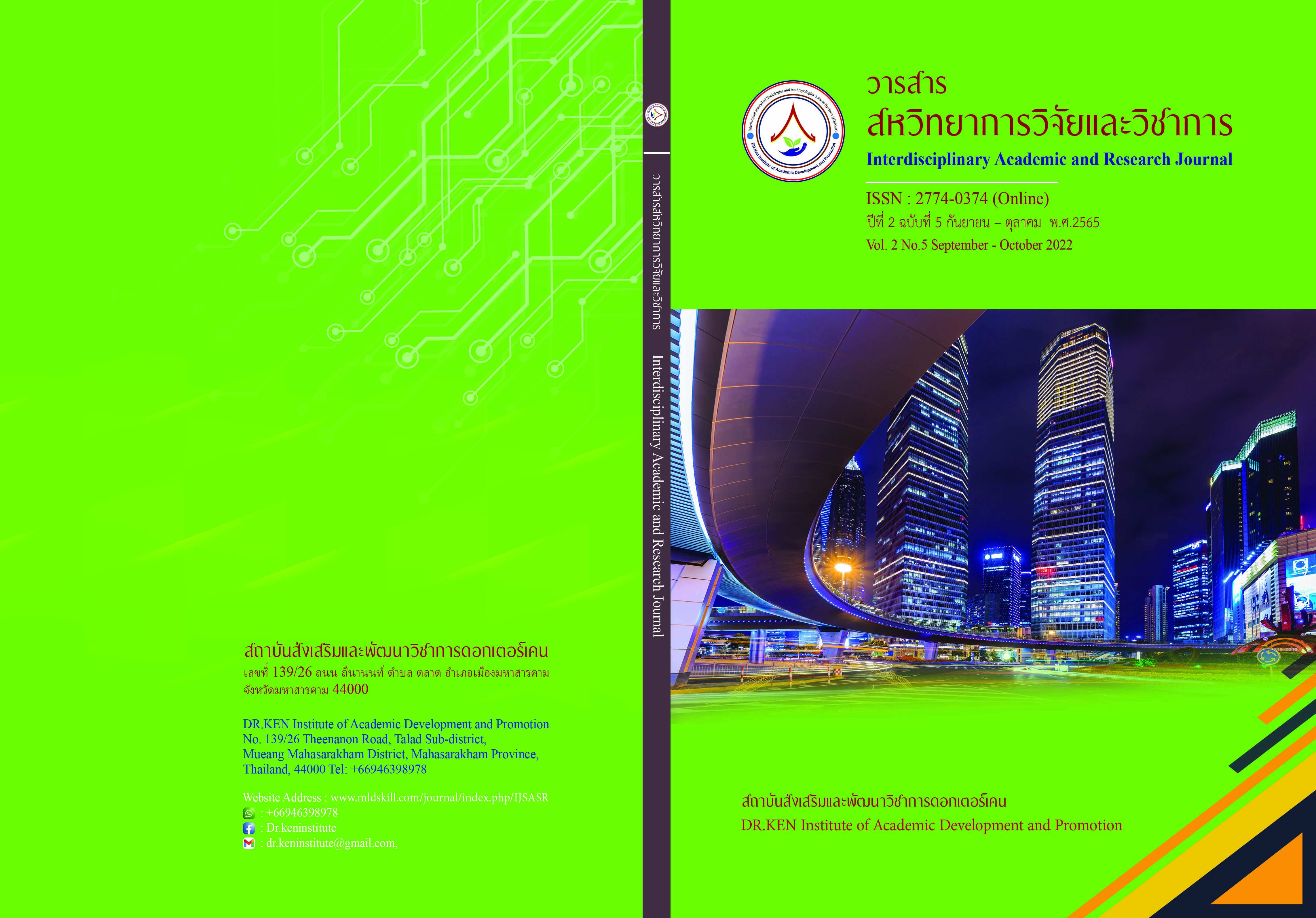An Online Warehouse Management Approach for Instant Coffee Sellers in Muang District Phatthalung Province
DOI:
https://doi.org/10.14456/iarj.2022.126Keywords:
Management; , Online Warehouse; , Instant Coffee SellerAbstract
Doing business online is trading and providing services through an online system with a website as the medium today, both a self-made investment website and a website that offers free advertising, such as free classifieds website, doing business online today is not done because it is a trend, but it is done with foresight for long-term income generation and can be taken as a career to support the family. Thus, this research aims to study the online warehouse management activities of instant coffee sellers in Muang District, Phatthalung Province. And to present an online warehouse management approach of instant coffee sellers in Muang District, Phatthalung Province Population is consumers who buy healthy coffee products through various applications in Phatthalung Province. The tool used was a questionnaire to collect data from the sample of 30 sets. Using direct interviews with managers and employees in charge of online inventory control. Data were analyzed by One-Way ANOVA, and Multiple Regression Analysis. The results of the research found that most of them had a period of 1 - 3 years in business, with 1 - 5 years of work experience. Data analysis on the importance of online warehouse management factors overall, it was at the most agreeable level with total mean = 4.35 standard deviation = 0.464. The hypothesis test results revealed that the significance of the work experience, position and average monthly income variables was greater than the 0.05 level of significance. It shows that different factors above affect the efficiency of inventory management of instant coffee sellers.
References
กมลชนก ปลื้มภิรมย์ และ ปิยะเนตร นาคสีด. (2563). การเพิ่มประสิทธิภาพการบริหารจัดการสินค้าคงคลังกรณีศึกษา บริษัทแพ็คเกจดีไซน์ จํากัด. บัณฑิตวิทยาลัย มหาวิทยาลัยรังสิต.
กรมอุตสาหกรรมพื้นฐานและการเหมืองแร่. (2555). รายงานประจำปี 2555 กรมอุตสาหกรรมพื้นฐาน และการเหมืองแร่. กรุงเทพฯ: กรมอุตสาหกรรมพื้นฐานและการเหมืองแร่.
กัลยา วานิชย์บัญชา. (2554). หลักสถิติ. ภาควิชาสถิติ คณะพาณิชยศาสตร์และการบัญชีจุฬาลงกรณ์มหาวิทยาลัย. กรุงเทพฯ. พิมพ์ครั้งที่ 13.
คำนาย อภิปรัชญาสกุล. (2550). การจัดการคลังสินค้า. กรุงเทพฯ : บริษัท โฟกัสมีเดีย แอนด์ พับลิชชิง จํากัด,
ชัชชุดา หลีเหล่างาม และ ดาริณี ตัณฑวิเชฐ.(2560). กลยุทธ์การบริหารจัดการธุรกิจสำหรับการเตรียมความพร้อมเพื่อเข้าสู่เศรษฐกิจอาเซียน. วารสารวิชาการการตลาดและการจัดการ มหาวิทยาลัยเทคโนโลยีราชมงคลธัญบุรี, 4 (1), 62-77.
เชฐธิดา กุศลาไสยานนท์ ,วิภาวรรณ ทองเนียม และ วิภาวรรณ จันทร์ประชุม. (2559). การศึกษาสมรรถนะการบริหารจัดการกลยุทธ์โลจิสติกส์อิเล็กทรอนิกส์ขิงผู้ประกอบการวิสาหกิจขนาดกลางและขนาดย่อม. วารสาร วิชาการ พระจอมเกล้า พระนครเหนือ, 27 (1).
ไตรภพ จิตนาริน และ แก้วใจ อาภรณ์พิศาล. (2561). การพัฒนาระบบจัดการคลังสินค้า กรณีศึกษาสินค้าแบรนด์ตรีสรา. พิมพ์ครั้งที่ 8. กรุงเทพฯ: สุวีริยาสาส์น.
ธารทิพย์ ประจินต์ (2558). การศึกษาทำเลที่ตั้งคลังสินค้า กรณีธุรกิจคาเฟ่ อเมซอน. [Online] https://grad.dpu.ac.th/upload/content/files/ปีที่%207%20ฉบับที่%203/7-3-15.pdf [20 มกราคม 2563]
สมชาย วรกิจเกษมสกุล. (2554). ระเบียบวิธีการวิจัยทางพฤติกรรมศาสตร์และสังคมศาสตร์. อุดรธานี: อักษรศิลป์การพิมพ์.
อภิชาต โสภาแดง และคณะ. (2551). การศึกษาระบบจัดการโซ่อุปทานของลำไยสดในประเทศไทย. รายงานวิจัยฉบับสมบูรณ์. คณะวิศวกรรมศาสตร์ มหาวิทยาลัยเชียงใหม่.
Downloads
Published
How to Cite
Issue
Section
License
Copyright (c) 2022 ศานิต ธรรมศิริ, จิราภรณ์ ทัพวงศ์, ภิญญดา ประกอบแก้ว, ธวัชชัย ม่วงมงคล, กฤติยา ศุภมนไพศาล

This work is licensed under a Creative Commons Attribution-NonCommercial-NoDerivatives 4.0 International License.
Copyright on any article in the Interdisciplinary Academic and Research Journal is retained by the author(s) under the under the Creative Commons Attribution-NonCommercial-NoDerivatives 4.0 International License. Permission to use text, content, images, etc. of publication. Any user to read, download, copy, distribute, print, search, or link to the full texts of articles, crawl them for indexing, pass them as data to software, or use them for any other lawful purpose. But do not use it for commercial use or with the intent to benefit any business.
















.png)


